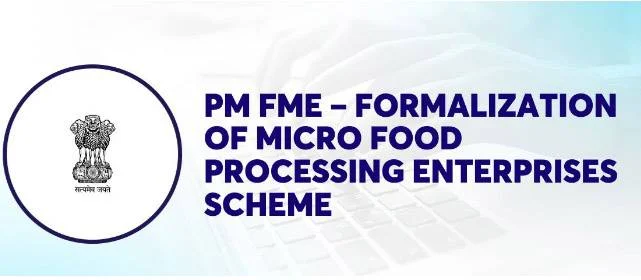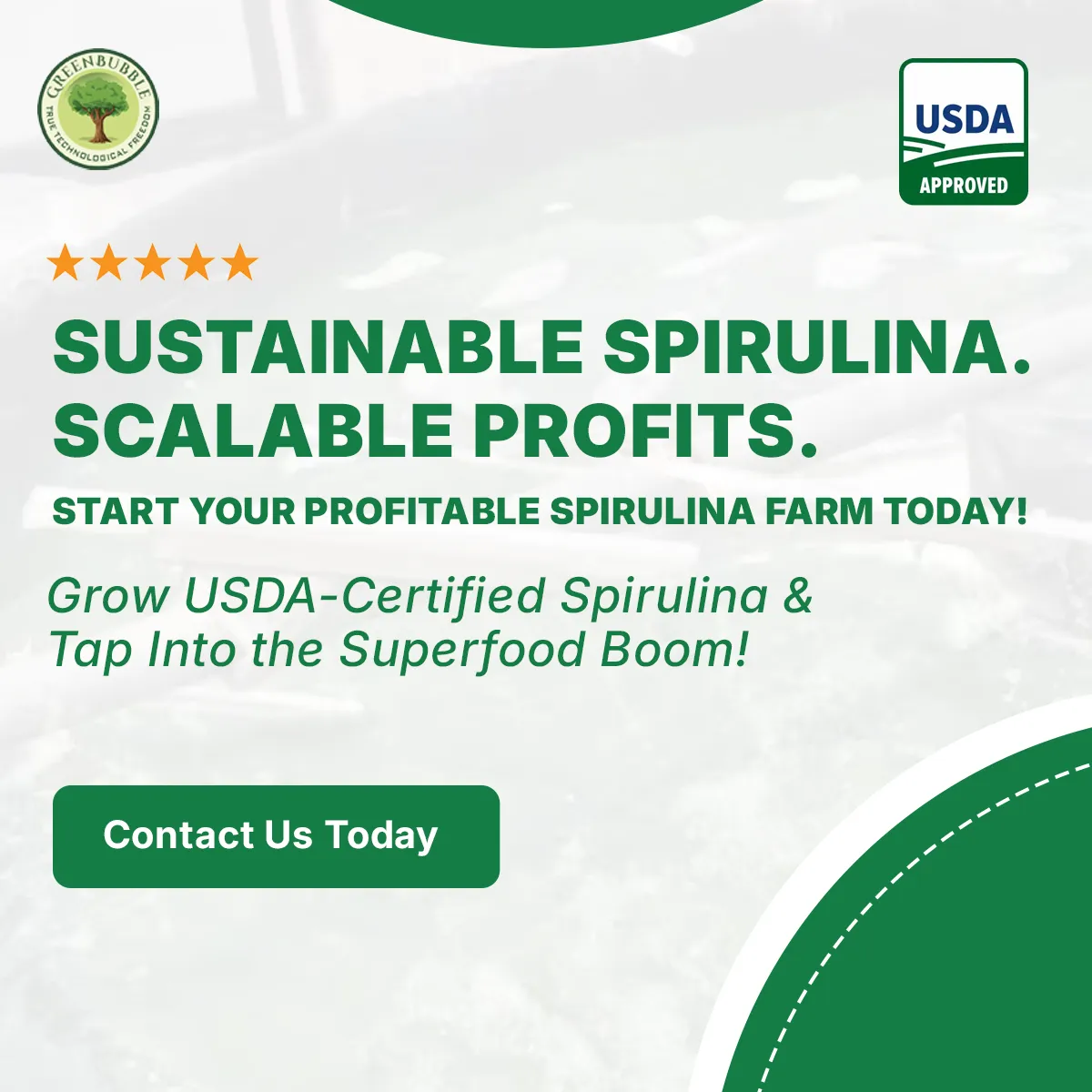The Prime Minister Formalization of Micro Food Processing Enterprises (PMFME) scheme, launched by the Ministry of Food Processing Industries (MOFPI), presents significant opportunities for entrepreneurs and farmers involved in spirulina farming. This scheme is designed to promote the formalization and growth of micro food processing units, encouraging sustainable and innovative agricultural practices like spirulina cultivation.
Understanding the PMFME Scheme
The PMFME Scheme, launched in June 2020 as part of the “Atmanirbhar Bharat Abhiyan” (Self-Reliant India Campaign), aims to formalize and enhance the competitiveness of micro food processing units across India. The key objectives of the scheme are:
- Formalization of unorganized food processing units.
- Support for infrastructure development in the food processing sector.
- Financial assistance to small entrepreneurs.
- Capacity building and training for micro-entrepreneurs.
The PMFME-MOFPI Scheme offers spirulina farmers an excellent opportunity to formalize and scale their business, making it a promising venture for those looking to tap into the growing market for spirulina products.
Why Spirulina Farming Fits into the PMFME Scheme
Spirulina is a versatile and high-value product that aligns perfectly with the objectives of the PMFME scheme. Here’s why spirulina farming and processing are ideal candidates for support under this program:
- Health and Wellness Trend: Spirulina is widely recognized as a superfood, rich in protein, vitamins, and antioxidants. Its growing demand in the wellness industry, as well as in the food supplement market, offers entrepreneurs a lucrative business opportunity.
- Employment Generation: Spirulina farming, like other micro-enterprises in agriculture, can create employment in rural areas, aligning with the PMFME’s focus on employment generation in food processing sectors.
- Value Addition: The PMFME scheme emphasizes value addition to agricultural products. Spirulina can be processed into powder, tablets, or capsules, adding value to raw spirulina and increasing its market potential.
- Sustainability: Spirulina farming is eco-friendly, requires minimal land and water, and produces a high yield. Its sustainability aligns with the government’s vision of promoting environmentally responsible agricultural practices.
How PMFME-MOFPI Scheme Can Support Spirulina Farming
-
Financial Assistance for Equipment and Infrastructure
One of the most significant benefits of the PMFME Scheme is the financial support it offers to micro-entrepreneurs for setting up or upgrading equipment. For spirulina farmers, this support can be used to invest in:
- Cultivation ponds or tanks: Spirulina is grown in shallow tanks or ponds. Financial aid under the scheme can help establish the necessary infrastructure.
- Filtration and drying equipment: After harvesting, spirulina needs to be filtered, dried, and processed into powder or other forms. The scheme’s subsidies can help farmers invest in the technology required for these stages.
- Packaging and branding equipment: The PMFME Scheme encourages value addition, and spirulina entrepreneurs can use the subsidy to invest in equipment for packaging and branding, which enhances the product’s marketability.
The scheme provides a 35% credit-linked subsidy on eligible project costs, with a maximum limit of ₹10 lakh per unit. This ensures that micro-entrepreneurs in spirulina farming can scale their operations without the burden of significant upfront capital investment.
-
Capacity Building and Training Programs
The success of a spirulina farming business depends on knowledge of cultivation techniques, post-harvest processing, and market trends. The PMFME Scheme offers extensive support in the form of capacity-building and training programs:
- Technical Training: Spirulina farming requires an understanding of how to maintain optimal conditions for algae growth, including water quality, temperature control, and harvesting techniques. Training provided under the scheme can equip farmers with this technical expertise.
- Business and Marketing Training: The scheme also offers assistance in developing business plans, marketing strategies, and accessing new markets. This is particularly useful for spirulina farmers who are new to formal business practices.
- Food Safety and Quality: The scheme places a strong emphasis on food safety and quality standards, which are critical for spirulina products. Training in these areas ensures that your product meets national and international standards, making it easier to market your spirulina in premium markets.
-
Market Access and Branding Support
Another vital component of the PMFME scheme is helping micro-entrepreneurs access new markets and establish strong brands. For spirulina farming, this support can make a huge difference:
- One District, One Product (ODOP): The PMFME Scheme promotes the concept of ODOP, where each district focuses on producing a specific product that reflects its strengths. If spirulina is recognized as a product under the ODOP framework in your district, your farm will benefit from additional marketing and branding support. The scheme facilitates connections to larger markets and even export opportunities.
- Support for Branding and Advertising: Building a strong brand is crucial in the spirulina industry, where consumers look for trusted, high-quality health products. The PMFME scheme provides up to 50% support for branding and marketing activities, including logo design, packaging, labeling, and online promotions. This can be particularly useful for Spirulina Marketing as a premium, organic, or locally sourced product.
-
Cluster-Based Approach
Under the PMFME Scheme, a cluster-based approach is used to encourage collective growth. Spirulina farmers within a district or region can benefit by working together in clusters, allowing them to share resources, equipment, and knowledge. This leads to economies of scale, reduced costs, and improved market access.
In addition, the scheme facilitates Common Facility Centers (CFCs) for food processing. These centers can offer shared resources such as drying, packaging, and storage facilities that spirulina farmers can access at reduced costs.
-
Ease of Credit Access
The PMFME scheme also works with financial institutions to ensure that micro-entrepreneurs can access affordable credit. Spirulina farmers can apply for credit-linked subsidies with ease, making it simpler to secure financing for expanding or upgrading their farming operations.
The Future of Spirulina Farming with PMFME Scheme
Spirulina farming holds immense potential in both domestic and international markets. By leveraging the PMFME-MOFPI Scheme, spirulina farmers can tap into this growing market while benefiting from government support. From financial assistance and infrastructure development to branding and market access, the scheme provides a comprehensive framework for turning spirulina farming into a profitable and scalable business.
Conclusion
The PMFME-MOFPI scheme is a game-changer for micro-entrepreneurs in the food processing sector, like Spirulina farming. With subsidies for equipment, training for technical and business skills, and support for market access and branding, this scheme offers a holistic approach to help spirulina farmers grow their businesses.
By taking advantage of the resources and opportunities provided by the PMFME scheme, spirulina entrepreneurs can build sustainable and profitable ventures, contributing to both rural development and the growing health and wellness sector.


